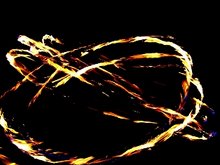One of the most outstanding features of zartusht’s massage is freedom and choice.
The importance of freedom and choice in zartusht’s creed are so blatantly clear that there is no need to interpret them.
Zartusht advocates freedom in society and religious practice and worship. In Yasna 30/5 zartusht stresses that one must choose mazda. Man must voluntarily choose to obey him. In Yasna 53/2, zartusht’s daughter and son in law are called on to freely choose the worship of ahura.
Zartusht clearly addresses the responsibility of the individual to fight in order to attain truth and true forgiveness. On this path each man can only fight for himself (Bribes to the church and the clergy are not avail). To make this important decision man can only relay on himself. No relative, tribe, relationship or intermediary can influence this choice. None of these factors are taken into account for no one can help man in making this decision. Zartufht’s greatest discovery was the responsibility of the individual toward god.
The brilliance of the creed of zartusht is that each individual who studies the Gathas learns that this religion relies on a sense of human freedom. The suggestion of good thoughts, good words and good deeds is the most important weapon that burns the imprint of the individual church, institution, and clergy within the mind of the disciple. According to zartusht as stated in the Gathas, fate dose not influence man’s behavior in the future…
Religion depends on one’s understanding and judgment. In one hand one bears truth and goodness while in the other hand lie diversion and lies.
Zartusht’s creed gives life a splendor which is higher than that of any other way of thought. This way of thought distances man from his vermin-like existence of the middle ages and from the mechanical being of today.
Zartusht dose not see humans as figures on a celestial chessboard. Mankind has individuality, will and freedom, for Ahura Mazda wanted man to have this authenticity.
Zartusht’s creed is a religion of free will in its highest form.
In Yasana 30/5 the two essences of thought choose good and evil through free choice. In 30/2 zartusht clearly states that each man must make his own choice between the creeds of truth and falsity. Each man must choose his own religion.
It is interesting that even divine rule must be chosen. This fact is stressed in 53/2 where zartusht states that Ahura Mazda must be chosen. This means that the belief in god’s existence can not be forced to anyone. Man must worship him through a clear conscience.
In conclusion we learn that one of the most important features of zartusht’s religion is choice and human responsibility. No other religion has so clearly stated the documentation of good deeds and bad deeds.
In order to explain zartusht’s creed we need but look at three verses of the Gathas in which free choice has been clearly pronounced:
It has been clearly stressed in this verse that man must choose their leaders freely. They must choose to follow the path he shows. Man is free to choose the path of the false leader but it is man himself who endures the result of his right or wrong choice.
31/11:”In the beginning did thou, Oh Mazda, create bodies and souls for us. Thou did grant us the wisdom of thy thought. Thou did grant life to bodies, Thou gave bodies the power to work. So too did Thou teach each man to choose his creed.”
48/4:”He whose thoughts are good, or he who is evil in words and deeds will find his conscience filled with either good or evil. The path that thoughts choose through freedom and choice will and faith will follow. Finally they (the good and the bad) will be separated from one another.
The importance of free will and choice in the creed of zartusht has been unanimously acclaimed by all oriental scholars who have studied the Gathas. Even those who have put forth the most outlandish interpretations of the Gathas have agreed on the fact that in this creed man is being of free will and choice. As far as this prophet is concern each man must choose his path in life freely.

